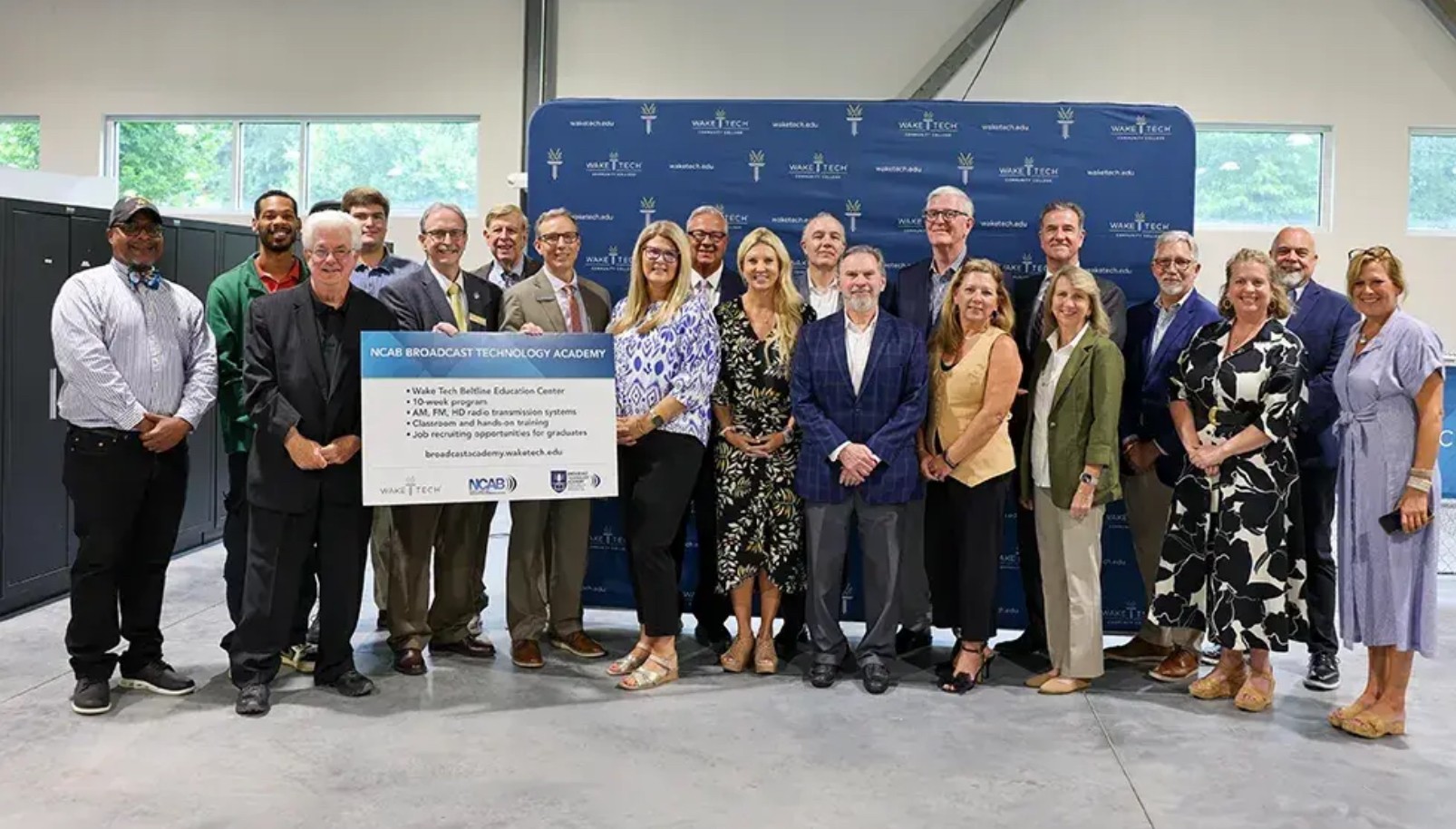The broadcast industry is at a pivotal moment driven by technological convergence and evolving content platforms. Two educational institutions are stepping up with innovative programs tailored to the needs of the future. This fall, Wake Tech Community College (WTCC) and the University of Wisconsin Oshkosh are debuting robust new pathways to prepare the next generation of broadcast engineers.
Wake Tech Community College — NCAB Broadcast Technology Academy
Wake Tech, in partnership with the North Carolina Association of Broadcasters (NCAB), has introduced its NCAB Broadcast Technology Academy, a 10-week, no-cost non-credit program held at the Beltline Education Center in Raleigh.
Participants engage in intensive classroom and hands-on labs, diving deeply into:
- AM, FM and HD radio transmission systems, including transmitters, antennas, transmission lines, remote control systems and program delivery systems
- Technician competencies—from troubleshooting legacy gear to modern digital broadcast systems—with preparation for the Society of Broadcast Engineers (SBE) Certified Broadcast Technologist exam
- Tuition, fees, books and living expense assistance are provided, with continued enrollment contingent on meeting attendance and performance benchmarks
- Graduates emerge job-ready and connected to broadcast industry recruiters via Wake Tech’s professional network

Administrators and supporters of the NCAB and Wake Tech Partnership to launch a short-term training program for broadcast technicians gathered to announce the new program in August.
This program addresses a critical gap, caused by both industry demand and demographic trends, and few institutions offer such a focused, fast-track technical credential.
University of Wisconsin Oshkosh — RTF Broadcast Engineering Emphasis
Also launched this fall, UW-Oshkosh’s Broadcast Engineering emphasis within its Radio TV Film (RTF) bachelor’s degree offers a uniquely interdisciplinary approach. Developed in collaboration with the Wisconsin Broadcasters Association and industry leaders, the curriculum blends:
- Foundations in media through core RTF courses (e.g., Media Aesthetics, Audio/Radio, Visual Media, History of Cinema, TV/Radio, plus an audio or TV practicum)
- Technical depth via courses in Basic Electrical Circuits I & II, Information Systems, Network & Data Communications, Live Remote Production and a broadcast engineering internship
- Capstone and electives such as programming in Python, electronics or audio studio procedures
- Enrollment in one certificate—Sports Media, Digital Content Creation or Film & TV Production—so students graduate with both a technical and creative skill set
UW-Oshkosh is also building a 2+2 pathway with Madison College: students can earn an associate degree in applied broadcast engineering and transfer seamlessly to complete the BS — a direct route into media engineering careers.
Leadership in both academia and broadcast organizations underscores the significance of this launch:
“I think one of the main strengths of our program at UW-Oshkosh is our facilities. Over the years there have been several students that found the technical side of the industry interesting due to their exposure to our facilities and made Broadcast Engineering their career. With the average age of the broadcast engineer climbing every year, I felt educating new ones was an issue that needed attention. UW-Oshkosh, having the Engineering Technology program, Information Systems program, Computer Science program and the Radio-TV-Film program that just celebrated 60 years, we have all the elements to provide a young person the experience and education to begin a Broadcast Engineering career,” said William Kerkhof, broadcast operations manager.
Beth Hubbard, RTF chair, spoke on the rarity and necessity that this emphasis brings to the Wisconsin broadcast space. “This emphasis offers the only professionally run broadcast-style curriculum in Wisconsin for authentic industry training, developed hand-in-hand with broadcast engineers.”
She goes on to state, “This emphasis is about more than learning technical skills, it’s about empowering students to think creatively, solve problems and connect with the broadcast community in ways that prepare them to lead the industry forward.”
Why These Programs Matter
For aspiring engineers, these programs provide an accelerated route into technical roles, backed by exam prep and industry connections. They offer depth, creative breadth and experiential learning while equipping students for diverse roles across media engineering.
For the broadcast industry at large, these programs additionally create a steady stream of professionals capable of maintaining, modernizing and innovating broadcast infrastructure. The programs bridge the gaps between academia and practice, ensuring graduates are immediately effective in engineering roles that demand both hands-on skill and creative awareness.

